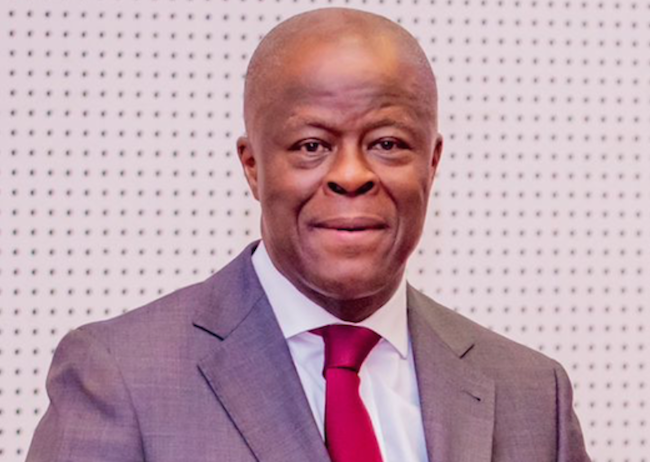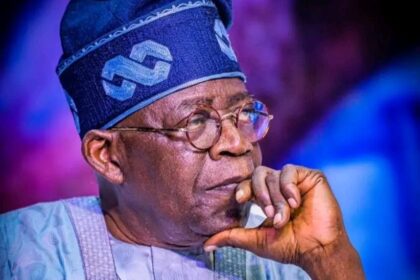● Presidency sources dismiss stroke rumours, affirm Finance Minister is recuperating in Abuja under medical care
● Why there are no plans to replace Nigeria’s chief fiscal strategist
Rumours often travel faster than truth, flitting through corridors of power like startled moths chasing the glow of speculation. In Abuja’s perfumed air of intrigue, rumours recently rose that Nigeria’s Minister of Finance and Coordinating Minister of the Economy, Mr. Wale Edun, had fallen to a grave illness. Some said he has incapacitated by a stroke, while another thread of the rumour claimed he had been replaced in secret.
Yet, within the measured calm of the Presidency, truth has reclaimed its place: Edun lives; he is healing and maintains his post as the nation’s chief steward of the treasury. He is recovering under the watchful care of doctors in Abuja, according to The Capital findings.
The Capital has confirmed, through two highly placed presidential sources, that Wale Edun, the man who carries the burden of Nigeria’s economic recalibration, is indeed unwell but nowhere near the edge that rumour imagined. The sources, pleading anonymity, spoke with the firm conviction of those close to the facts: “He’s sick, yes, but it’s not a stroke. He is at home in Abuja, receiving medical care. There are no plans—none whatsoever—to replace him.”
The trajectory of power is a delicate thing. One errant breeze, one misquoted whisper, and it becomes a storm that batters truth to splinters. So it was with Edun, the quiet technocrat whose calm presence has become a reassuring constant in President Bola Tinubu’s reform team. When news of his absence from the World Bank and IMF meetings in Washington surfaced, the rumour mills spun with feverish haste: the minister was incapacitated; he had been flown abroad; the President was weighing a replacement.
Yet, according to those within the Villa, such tales are nothing but the spawn of mischief. “He doesn’t have a stroke,” a senior aide affirmed to The Capital. Thus contrary to widespread rumour about his fate, Edun is simply indisposed and receiving quality care from doctors in Abuja. Should his condition require it, perhaps, he may travel for treatment, but as we speak, he remains in Nigeria, under professional care. The reports of his replacement are unfounded, said a highly privileged source in the presidential office.
At sixty-nine, Edun has walked through seasons of policy battles and fiscal storms, and survived. His present indisposition, while serious, bears no terminal shadow. Those close to him describe a man determined to heal quietly and return to work, his mind still engaged with the country’s economic reform agenda, his faith in renewal unshaken.
The Presidency, through its Special Adviser on Information and Strategy, Bayo Onanuga, has subsequently corroborated these accounts. “Yes, he’s indisposed,” Onanuga said. “He suddenly fell ill, but he’s in Nigeria, recuperating. Wale Edun remains very much around.”
His condition is closely monitored and should his physicians recommend further care abroad, such a move will follow, but no emergency airlift, no panic-driven flight, has taken place.
Even now, colleagues within the Ministry of Finance speak of his disciplined work ethic; how, before his illness, he had maintained punishing hours at the office, poring over figures, holding consultations deep into the night, working tirelessly to stabilise the naira and re-anchor Nigeria’s faltering fiscal narrative. Those efforts, while often contested by the impatient public, have been central to President Tinubu’s broader economic reform mission, a mission Edun helped design and continues to guide, even from the quiet of convalescence.
The rumour of his removal was born of ignorance and fanned by mischief, according insiders. Power, after all, attracts envy as honey draws bees. But the Presidency’s insiders were unequivocal: “There are no plans to replace him,” one source declared. “He remains the Minister of Finance and Coordinating Minister of the Economy. His work stands; his loyalty stands; his vision stands.”
For a nation weary of instability, such assurance matters. The Ministry he leads has, since his appointment on August 28, 2023, become a haven of reform, an experiment in recalibrating fiscal integrity. Edun’s stewardship has sought to tame inflation, attract foreign investment, and cleanse the stables of government spending. His illness may have slowed his physical stride, but his work endures, supervised by aides trained under his discipline.
Those who know him describe a man of quiet intelligence, deeply spiritual and unfailingly courteous. His voice, calm and reflective, carries neither the bluster of politics nor the arrogance of privilege. Before joining Tinubu’s federal cabinet, he had served as Lagos State Commissioner for Finance from 1999 to 2004, a period often credited with laying the fiscal foundation of the Lagos success story. His return to national service, two decades later, was pragmatic, an elder statesman rejoining his old ally in a renewed national mission.
Today, that mission momentarily pauses as he heals. The country’s economic delegation to the forthcoming World Bank and IMF Annual Meetings in Washington will, instead, be led by the Governor of the Central Bank, Olayemi Cardoso. The Presidency has already confirmed this arrangement, framing it not as a displacement but as continuity. Cardoso, Edun’s ally and fellow reformer, will represent Nigeria’s interest while the Minister recovers at home.
In the currency of political rumour, silence often masquerades as absence, and illness as weakness. Yet those who have served in government know that human frailty spares no title. Even the steadiest hands may tremble and the most brilliant minds may tire. What distinguishes the great from the fallen, however, is resilience; the ability to heal and rise again, without succumbing to despair or the predatory gossip of the public square.
Edun’s story, illness, stripped of rumour’s exaggeration, is a reminder that even reformers bleed, that renewal often requires rest, and that the business of healing, whether of body or economy, demands patience.
The walls of the Villa have heard many rumours: ministers replaced, policies reversed, and alliances broken. Yet in this instance, the story turns not on betrayal but on endurance. Those close to President Tinubu describe his faith in Edun as unfaltering. The bond between the two stretches back decades, anchored in trust and shared economic vision. The President, one insider revealed, “has been briefed and is satisfied with the pace of Edun’s recovery. There is no conversation about replacement. None at all.”
This trust echoes a rare loyalty in politics, a space where alliances are often transactional and loyalty fades with convenience. Tinubu’s refusal to entertain rumours of substitution underscores his regard for Edun’s competence. The President knows that the nation’s fiscal reforms require consistency in stewardship, and that Edun remains the compass by which that ship sails.
Even so, friends and associates of the Minister have begun to share words of prayer, affirming faith in his recovery. For them, Edun is both a bureaucrat in charge of figures and a moral anchor within a system that often trades sincerity for showmanship. His illness, therefore, feels personal.




